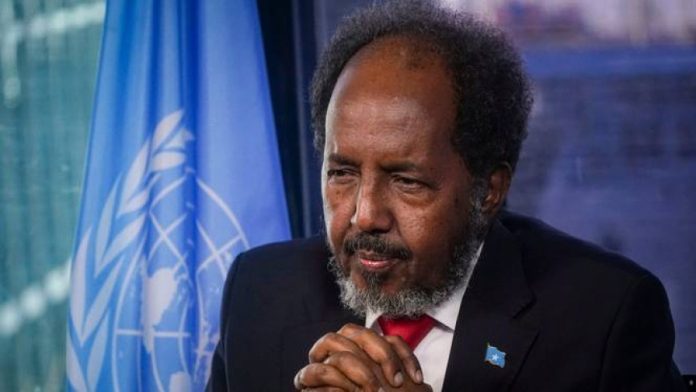Facebook Twitter (X) Instagram Somali Magazine - People's Magazine
In a significant move, the UN Security Council (UNSC) has unanimously approved a resolution to end its political mission in Somalia over the next two years. This decision follows Somalia’s request earlier this year to phase out the United Nations Assistance Mission in Somalia (UNSOM), which has been active in the country since 2013. The mission has supported Somalia’s transition to democracy and the rule of law, providing critical assistance amid decades of conflict and instability.
Somalia’s Request for Transition
In May, President Hassan Sheikh Mohamud’s government initially requested an end to UNSOM’s mandate when it was set to expire in October. After further discussions, the Somali government proposed a two-year transition period to ensure a gradual handover of responsibilities, allowing Somalia to assume greater control over its governance and security.
In response, the Security Council approved a phased approach, with UNSOM now rebranded as the United Nations Transitional Assistance Mission in Somalia (UNTMIS). Under this new structure, the UN mission will begin reducing its presence and transferring responsibilities to Somali authorities, aiming to fully exit by October 31, 2026.
Focus on Elections and Human Rights
During the first year of the transition, UNTMIS will prioritize supporting Somalia in conducting free and fair elections and advancing human rights protections. By the end of the first year, many of UNSOM’s core responsibilities will transition to Somali officials. This change is seen as a step towards Somalia’s self-reliance, yet it poses challenges as the country continues to grapple with political instability and security threats.
Rising Hostility Towards UN Missions in Africa
The decision to end UNSOM reflects a broader trend of African nations seeking to limit foreign involvement in domestic affairs. In recent years, several African countries have expressed opposition to UN peacekeeping missions, highlighting a desire for greater autonomy and control over national security.
For Somalia, the end of the UN mission symbolizes a step toward independence but leaves questions about the country’s readiness to maintain stability.

